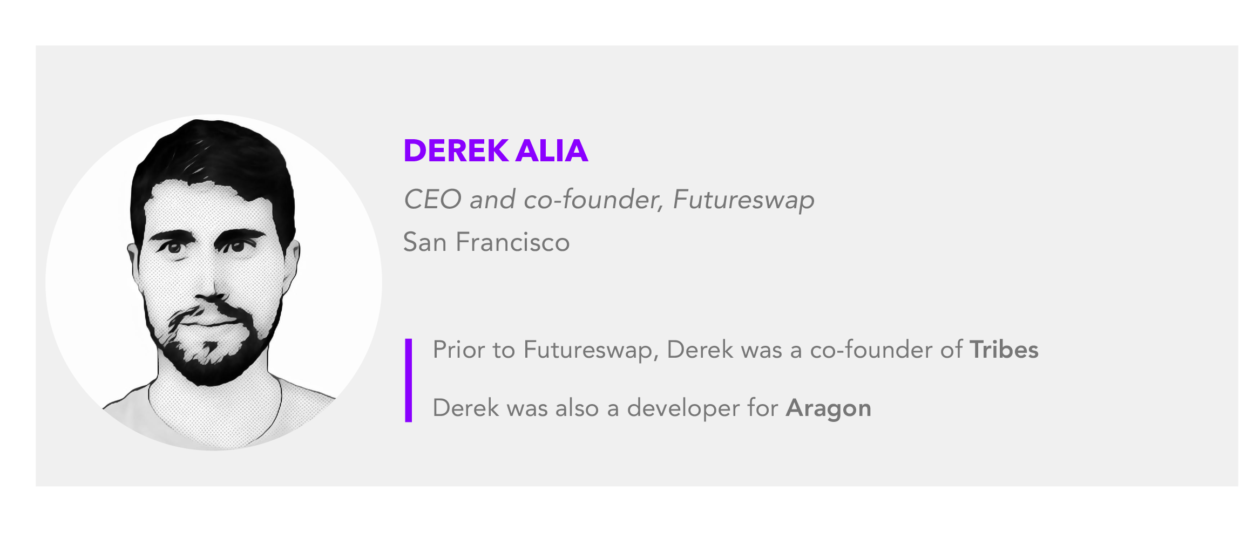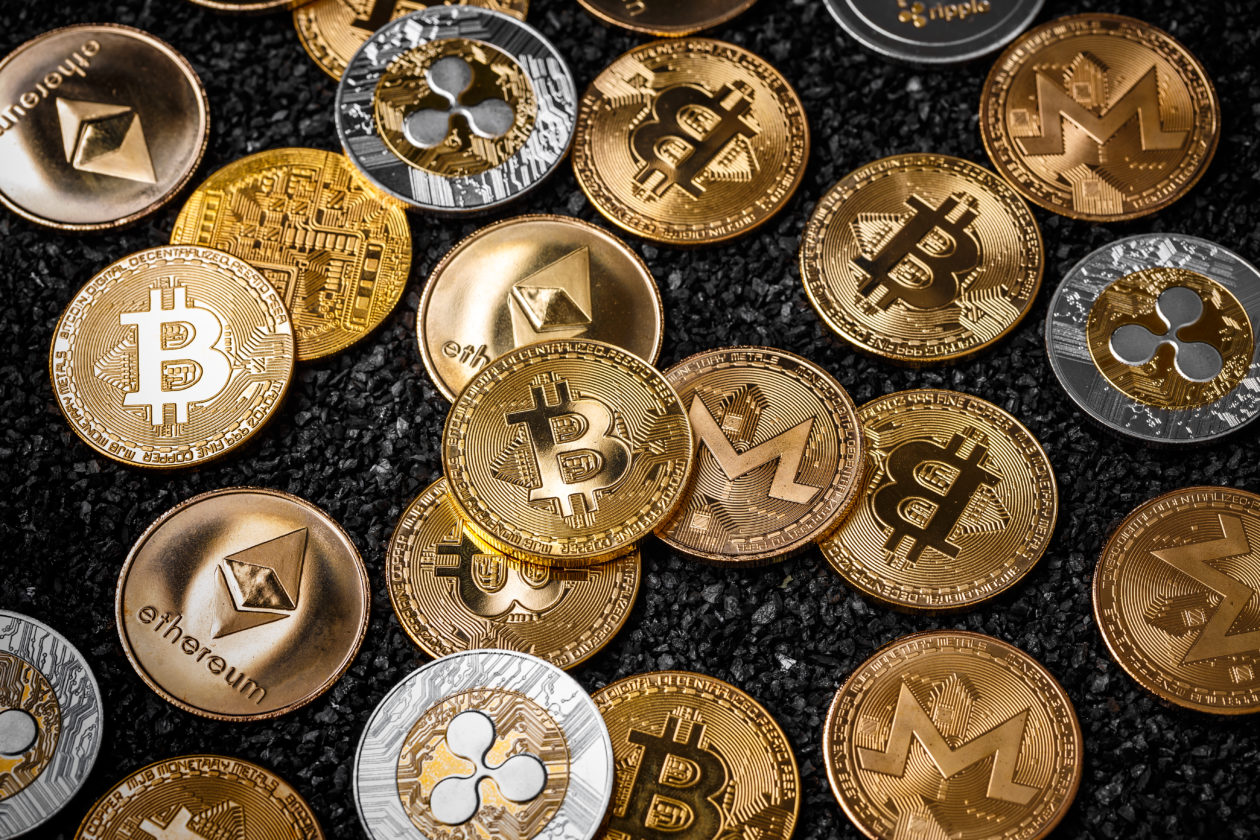Catalyzed by its growth in market cap and trading volume, decentralized finance (DeFi) has made a seat at the global traditional finance (TradFi) industry table. While DeFi was once thought of as a quixotic project, it is now undeniable that bit by bit, its permissionless, transparent, and trustless design has eaten away at TradFi’s stranglehold on finance by making it accessible and fun for everyone. This year will go down as the year the sleeping DeFi giant awoke, and for 2022: get ready for The Great Decentralized Derivatives Flippening.
The DeFi derivatives tipping point
Just like the rise of the internet, smartphones, and cloud computing, DeFi is the next leap forward in global finance. Centralized, incumbent, corporate gatekeepers of financial products and services are being replaced with decentralized, open, and permissionless protocols that were once looked down on as a pie in the sky pipe dream. The total value locked (TVL) for DeFi tokens, decentralized apps (dApps), and protocols continue to appreciate exponentially, alongside developers who are improving the tooling for scale and mainstream use.

The flippening is inevitable, but what will be the tipping point? What is the domino that will affect a drastic sea change? The answer is DeFi derivatives. There is roughly US$600 trillion of open interest in the international derivatives market. This equates to over 33,000x of Bank of America (2020) and over 15x of the entire S&P 500 market cap, which is the combined market cap of the 500 largest companies (including Tesla, Apple, Google, Amazon and Facebook — now rebranded as Meta).
Market forces will naturally attract the US$600 trillion derivatives market to a permissionless, transparent venue that provides traders with what they deserve — an ecosystem where participants have control of their funds without the need for a trusted intermediary or settlement house. Trusting an opaque centralized exchange that is plagued by downtime and rife with corruption to hold your funds is so last decade.
As the crypto markets rapidly evolve, a parallel trend observed in TradFi is materializing, where derivatives dethrone the once-dominant spot trading volume. The same is happening in DeFi.
In the ’70s, derivatives were niche and thinly traded. At the same time, spot markets had the vast majority of volumes due partly to the exchanges being inadequate with risk of insolvency, outages, and insider trading. As the market matured, derivatives volume gradually, and then suddenly, outpaced spot trading volumes. This trend has only continued with the derivatives volumes now being multiples larger than spot trading or any other market.
TradFi: built to be passed
TradFi has played a critical role in global finance, but it was bureaucratically built with information siloed in a black box and tangled in red tape. TradFi is a world of gatekeepers and insiders. You need eight years of schooling and an advanced degree just for the chance to be accepted into this closed-door club. In this insider-only TradFi world where there is no shortage of benefits for the bigwigs, there’s also a fiercely competitive yield-groveling ecosystem that is not all that fun.
DeFi is the opposite of TradFi because it’s fun, transparent, digestible and inviting. If you understand where and how the money flows, how returns are made, and how you can be part of it with one click, you realize that DeFi is the future. Yes, there are still inefficiencies in DeFi, but where there is inefficiency, there is the opportunity for arbitrage and an incredible amount of money to be made. TradFi sees this and wants to be a part of it. The inefficiencies in DeFi are the breadcrumbs that lead to TradFi being devoured by DeFi.
An exodus of TradFi talent
TradFi talent is gravitating to the orbit of DeFi for several reasons. For one, it’s perceived as the natural next step of finance, with DeFi looking to eliminate the need for almost 90% of what TradFi offers. So what happens when you pit the seasoned and restless inner circle of TradFi against a nascent demographic that wants to be on the cutting edge? They flock to the greener pastures of DeFi, a land filled with exciting opportunities where they don’t have to squeeze every dollar in risky and wild trades with the hopes of making a large yield.
In DeFi, it’s not like someone created Chase Bank; it’s like someone made the bank of Ethereum, a global system and internet bank used by billions of people regardless of where they live in the world with a limitless number of use-cases. DeFi is not some regional lending company; it’s a lending company that taps into literally everything.
Ethereum, and subsequently DeFi, is like a thriving, self-sustaining organism that unlocks value in multitudes. Everyone interacts with value, just like everyone interacts with information. With the combination of composability and permissionlessness, the amount of growth potential and opportunity is immense compared to the current system. This is demonstrated in such things as borrow and lend systems where anyone, regardless of who you are or where you live, is afforded the same access to assets typically reserved to the elite.
The future of finance
DeFi aligns with the core ethos of the crypto community and with the cultural and economic shifts happening globally. What used to be expensive, inaccessible and closed in TradFi is now affordable, transparent and open. Although the open interest in the international derivatives market is sure to cascade into DeFi, there are countless points of failure within TradFi ripe for disruption.
As the building blocks of the future of finance, DeFi has the inertia of network effects behind it. Products, services, and value will rise exponentially and in fast-acting ways as global developers and protocols compete with one another. In the open ocean of international finance, TradFi is a large boat that turns slowly. DeFi is a distributed network of smaller vessels that can shift quickly. And a rising tide lifts all DeFi seas.




